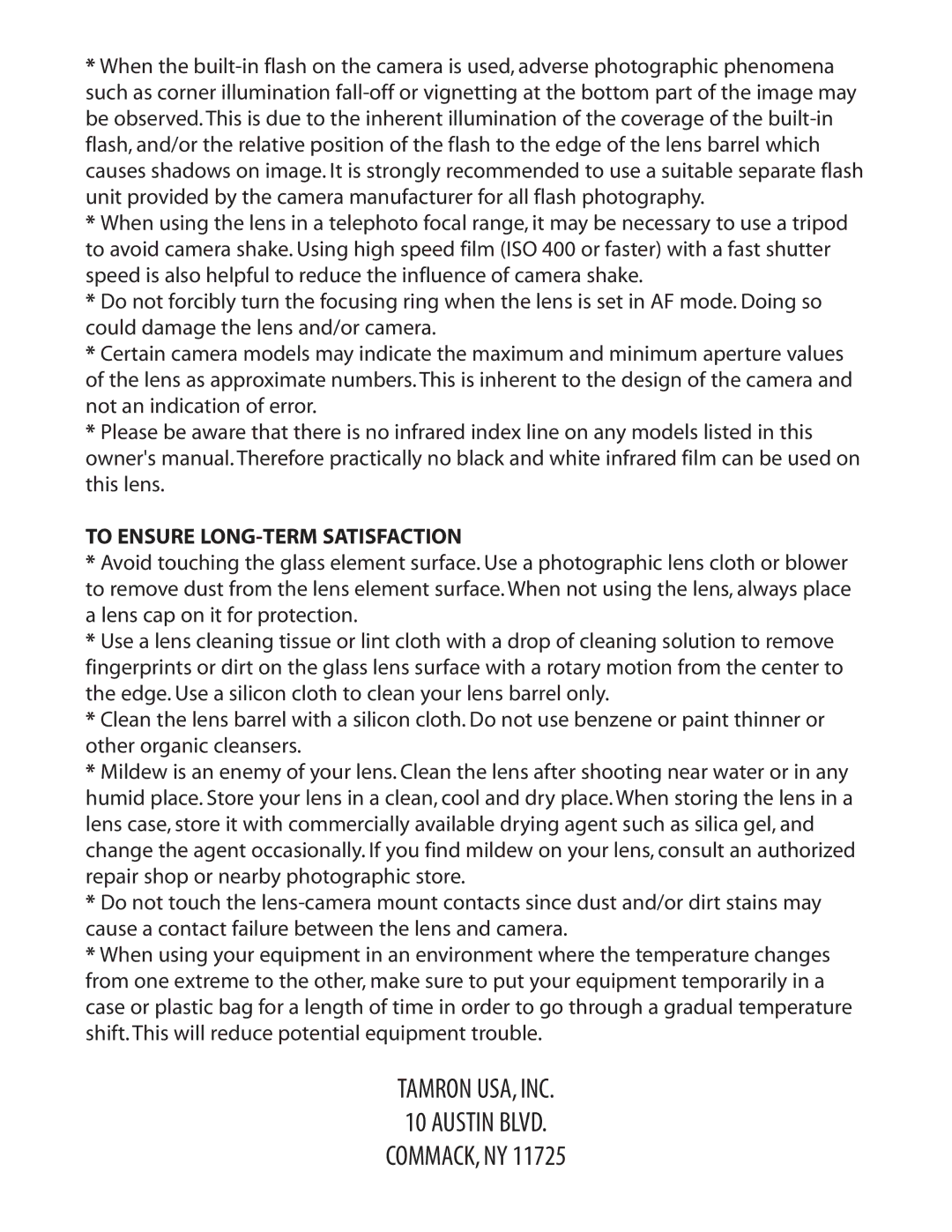*When the
*When using the lens in a telephoto focal range, it may be necessary to use a tripod to avoid camera shake. Using high speed film (ISO 400 or faster) with a fast shutter speed is also helpful to reduce the influence of camera shake.
*Do not forcibly turn the focusing ring when the lens is set in AF mode. Doing so could damage the lens and/or camera.
*Certain camera models may indicate the maximum and minimum aperture values of the lens as approximate numbers. This is inherent to the design of the camera and not an indication of error.
*Please be aware that there is no infrared index line on any models listed in this owner's manual. Therefore practically no black and white infrared film can be used on this lens.
TO ENSURE LONG-TERM SATISFACTION
*Avoid touching the glass element surface. Use a photographic lens cloth or blower to remove dust from the lens element surface. When not using the lens, always place a lens cap on it for protection.
*Use a lens cleaning tissue or lint cloth with a drop of cleaning solution to remove fingerprints or dirt on the glass lens surface with a rotary motion from the center to the edge. Use a silicon cloth to clean your lens barrel only.
*Clean the lens barrel with a silicon cloth. Do not use benzene or paint thinner or other organic cleansers.
*Mildew is an enemy of your lens. Clean the lens after shooting near water or in any humid place. Store your lens in a clean, cool and dry place. When storing the lens in a lens case, store it with commercially available drying agent such as silica gel, and change the agent occasionally. If you find mildew on your lens, consult an authorized repair shop or nearby photographic store.
*Do not touch the
*When using your equipment in an environment where the temperature changes from one extreme to the other, make sure to put your equipment temporarily in a case or plastic bag for a length of time in order to go through a gradual temperature shift. This will reduce potential equipment trouble.
TAMRON USA, INC. 10 AUSTIN BLVD.
COMMACK, NY 11725
